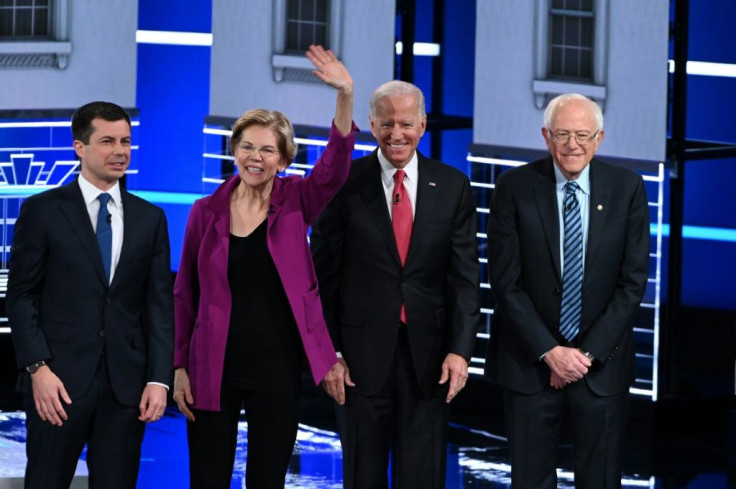China Cuts Democratic Presidential Debate Live Stream During Discussion On Uyghur Human Rights

Those with an interest in American politics were able to watch the 6th Democratic presidential debate on Thursday night (EST) without interruption. One exception, assuming no loss of power or signal access was in China, where screens across the country went black just before 9:00 p.m. EST. (Friday 8:00 a.m. local time).
Most viewers know that content is censored when the screen goes black and all sound cuts out because it happens regularly with live broadcasts on international media networks in China. The Chinese Communist regime will censor anything it considers politically sensitive content
The timing of this outage came right before the next question from PBS moderator Judy Woodruff to the candidates. Should the U.S. boycott the 2022 Beijing Olympics over China's alleged mass detention of its Uyghur citizens?
This is a particularly “politically sensitive” issue with China as it stands accused of human rights abuses in the country's western region of Xinjiang. The U.S. State Department claims that up to 2 million Muslim-majority Uyghurs may have been detained in mass detention centers in China's Xinjiang province. Former detainees and activists claim they have been subjected to harsh conditions and abuse as they undergo political re-education inside the camps.
Outside the camps in Xinjiang, things are not much better. One egregious example is Uyghur females who face a choice of being sent to the internment camps with their families or get married to a Han man to modify the family’s behavior to be more in-line with the Chinese Communist Party. The Han are the predominant ethnic group in China and forced marriages are the perfect setting for sexual abuse against women who have no choice in the matter.
Beijing denies allegations of human rights abuses at the camps, calling them "vocational training centers" with a focus on deradicalization and counterterrorism. According to some leaked documents the goal is to turn members of the Muslim minority into patriotic, Chinese-speaking citizens.
The blackout of the debate lasted about nine minutes as other issues concerning China were bantered about by the Democratic candidates. The pro-democracy protests in Hong Kong and the tensions caused by the Chinese military in the South China Sea were two of the politically sensitive topics on the debate agenda.
It will be interesting to see if China will censor the upcoming 2020 presidential debates between the eventual Democratic nominee and the incumbent President Donald Trump. The U.S. is currently a divided country politically but not on the issue of the treatment of Uyghur Muslims in western China.
© Copyright IBTimes 2025. All rights reserved.





















